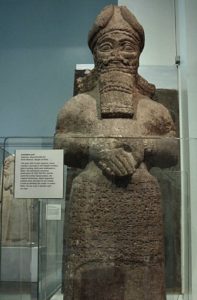(Texts: All Artifacts, Color Coding, & Writings in Bold Type With Italics Inside Parenthesis, are Added by Editor R. Brown, not the Authors, Translators, or Publishers!)
(gods in blue … mixed-breed demigods in teal)
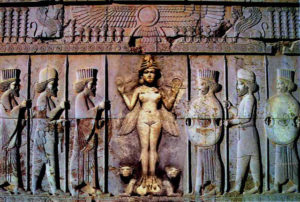 (naked Inanna, semi-divine mixed-breed king, etc. & winged sky-disc)
(naked Inanna, semi-divine mixed-breed king, etc. & winged sky-disc)
For the goddess Ištar (Inanna), supreme lady, sovereign of heaven and netherworld,
most valiant of the gods, splendid, the goddess Ištar-of-Uruk,
august princess who has taken (unto herself all) divine offices of highest rank
(and) has gathered to herself (all) ordinances, beloved, eminent,
who looks upon the king — her favorite — with steady favor,
makes his reign lengthy, (and) bestows on him power and victory,
empress of the world, most exalted of the gods, who dwells in Enirgalana
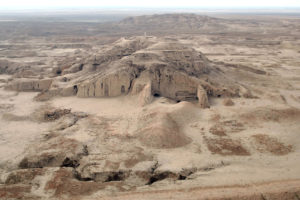 (E-ana, ziggurat residence of Inanna in Uruk)
(E-ana, ziggurat residence of Inanna in Uruk)
(“House, Prince of Heaven”) — which is inside Eanna — lady of Uruk, great lady, his lady:
Esarhaddon, great king, mighty king, king of the world, king of Assyria,
king of the four quarters (of the world), governor of Babylon, king of the land of Sumer and Akkad;
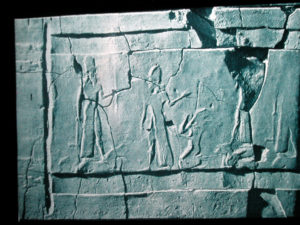 (Adad, Ashur, mixed-breed king, & damaged Ninurta)
(Adad, Ashur, mixed-breed king, & damaged Ninurta)
the one to whom the god Aššur (Ashur) has stretched out his hand, permanently selected by the god Enlil,
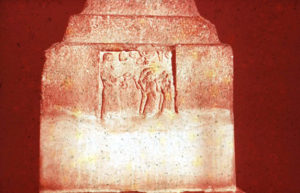 (giant god Marduk & mixed-breed king, etc)
(giant god Marduk & mixed-breed king, etc)
who was chosen by the god Marduk, favorite of the goddess Irnini (Ninlil);
(Top row: Ashur, Enki, Enlil, Inanna, Marduk, & Ningishzidda as horned serpent; Bottom row: Nabu, Nergal, Ninhursag, Ninurta, Utu, & Nannar)
who from his childhood trusted in the gods Aššur, Anu, Enlil, Ea (Enki), Sîn (Nannar), Šamaš (Utu), Adad,
Marduk, Nabû, Nergal, and Ištar (Inanna), the great gods, his lords,
(who) allowed him to attain his desire, (the one who) recognized their power,
(the one) over whom (the gods) extended their eternal protection
in order to appease their divine heart(s) and set their mind(s) at rest;
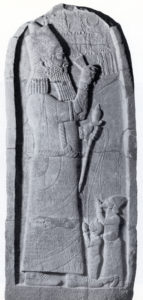 (giant god Ashur & King Esarhaddon with spouse keeling before him)
(giant god Ashur & King Esarhaddon with spouse keeling before him)
(the one who) by the might of the gods Aššur, Bēl (Marduk), the Son-of-Bēl (Nabû), and Ištar,
the gods, his helpers, ruled over all lands and made all rulers submissive to him;
the one who (re)constructed the temple of the god Aššur, (re)built Esagil and Babylon,
(Marduk’s ziggurat residence Esagil & Babylon below) (Inanna’s ziggurat residence E-anna & Uruk below)
renovated Eanna, completed the sanctuaries and cult centers, (and) (re)confirmed (their) sattukku offerings;
the king during the days of whose reign, the great lord, the god Marduk,
(son Nabu, mixed-breed king with dinner, earthling worker, seated father Marduk, & son Ashur)
became reconciled to Babylon (and again) took up his residence in Esagil, his palace;
the one who made the god Great-Anu enter into his city Dēr and his temple Edimgalkalama
(“House, Great Bond of the Land”) and had (him) sit upon (his) eternal dais;
(the one who) restored the splendid appearance of the great gods who had rushed to Assyria,
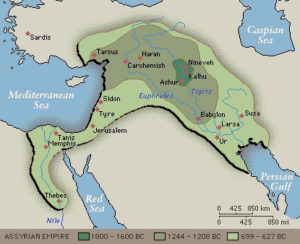 (Assyrian Empire)
(Assyrian Empire)
returned them from Assyria to their (proper) places and (re)confirmed their income;
wise prince, expert who knows every craft, who constantly established appropriate procedures
in the great cult centers (and) has purification rites performed correctly;
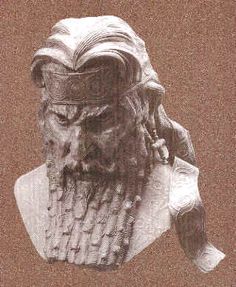 (Sennacherib)
(Sennacherib) 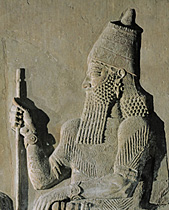 (Sargon II)
(Sargon II)
son of Sennacherib, king of the world (and) king of Assyria;
descendant of Sargon (II), king of Assyria, governor of Babylon, (and) king of the land of Sumer and Akkad;
descendant of the eternal (mixed-breed) line of Bēl-bāni, son of Adasi, king of Assyria;
precious scion of Baltil (Aššur), (one of) royal lineage (and) ancient stock —
When Eanna, the temple of highest rank, beloved of the goddess Ištar, my lady,
which a previous king had built, became old and its walls buckled,
I sought its (original) emplacement, removed its dilapidated parts, (and) surveyed its (entire) foundation.
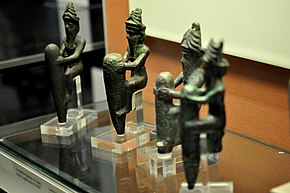 (Ningishzidda laid foundation pegs to the world’s greatest monuments)
(Ningishzidda laid foundation pegs to the world’s greatest monuments)
I completely (re)built (it) with the work of the god Kulla (Ningishzidda)
according to its ancient specifications (and) raised its top (as high) as a mountain.
May the goddess Ištar, supreme lady, look upon this work with pleasure
and may a good word for me be set upon her lips!
May she make my weapons prevail over all (my) enemies!
If at any time in the future, during the days of the reign of some future ruler,
this work falls into disrepair and becomes dilapidated,
may (that ruler) seek out its (original) emplacement (and) repair its dilapidated parts!
May he anoint an inscription written in my name with oil, make an offering, (and) set (it) back in its place!
The gods will (then) hear his prayers.
He will lengthen (his) days (and) enlarge (his) family.
(But as for) the one who by some crafty device destroys an inscription written in my name or changes its position,
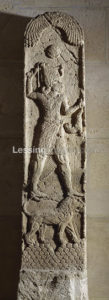 (Goddess of War Inanna, her 8-pointed star symbol above her head, standing upon her zodiac symbol Leo)
(Goddess of War Inanna, her 8-pointed star symbol above her head, standing upon her zodiac symbol Leo)
may the goddess Ištar, great lady, glare at him angrily
and make his name (and) his descendant(s) disappear from every land!
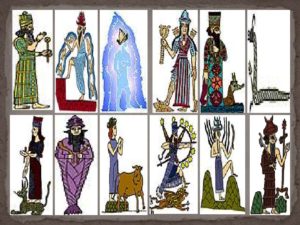
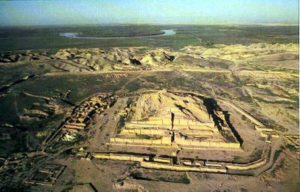
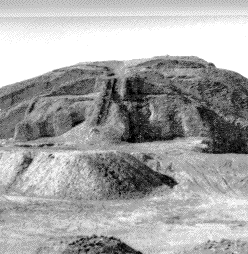
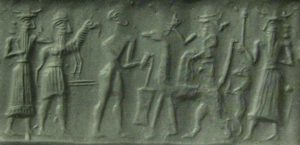
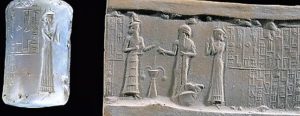
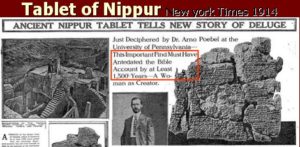
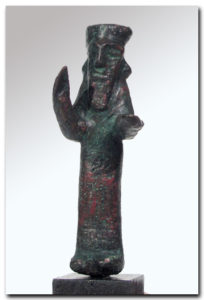
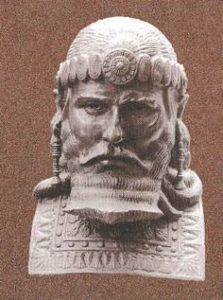
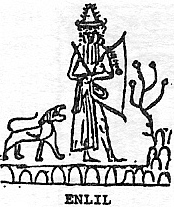
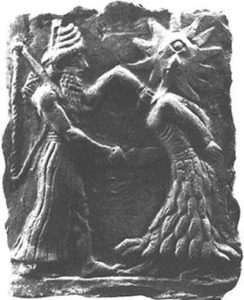
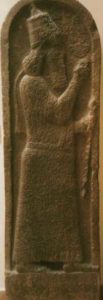
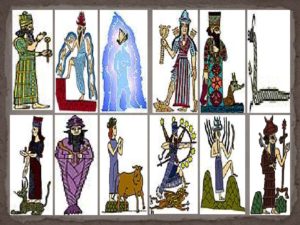
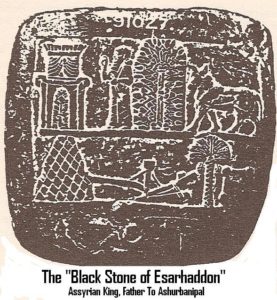
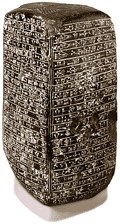
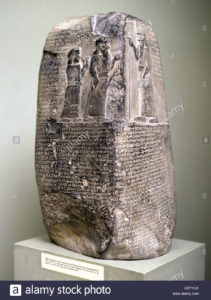
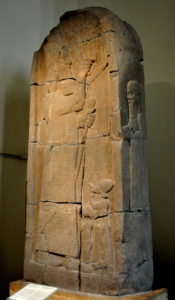

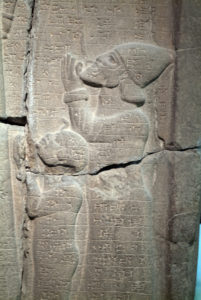
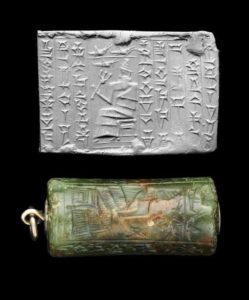
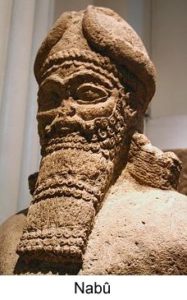
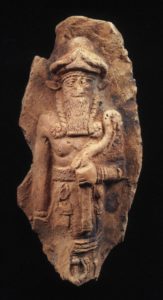
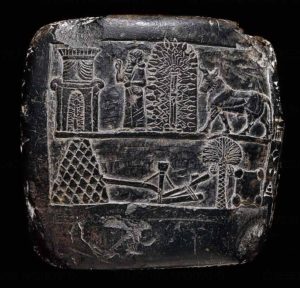

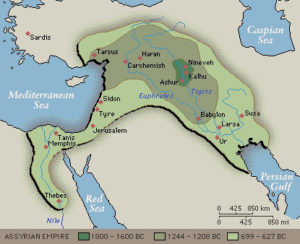
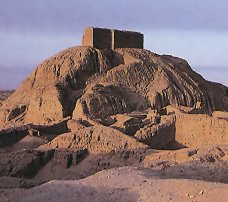
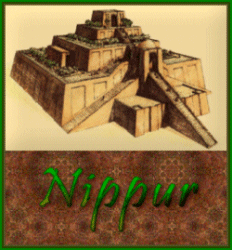
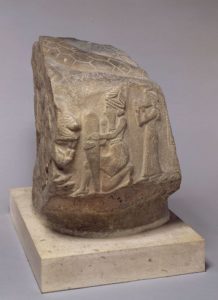
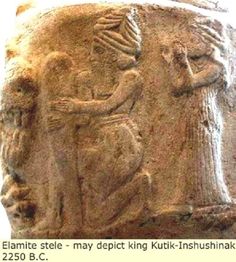

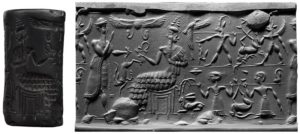
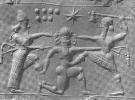
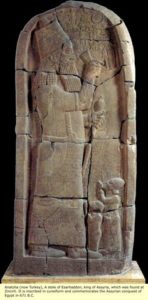
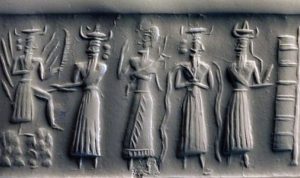
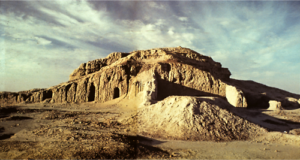
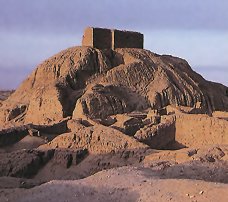
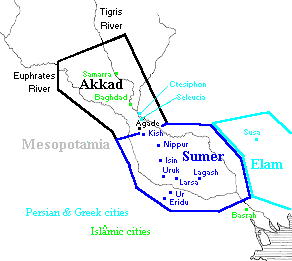
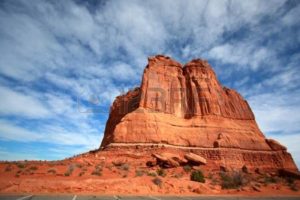
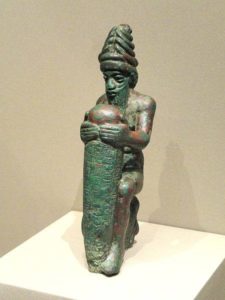
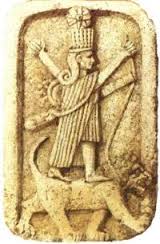
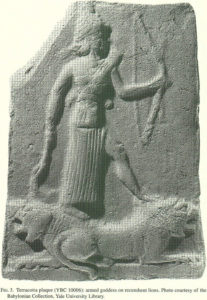
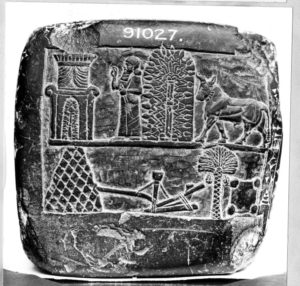
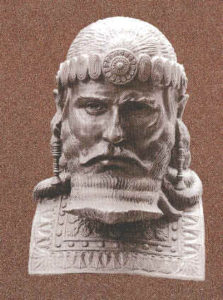
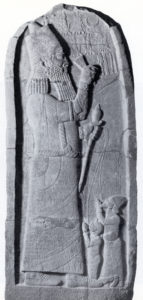
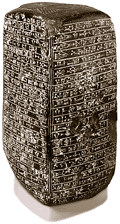
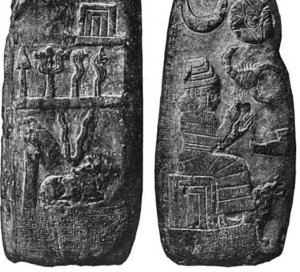
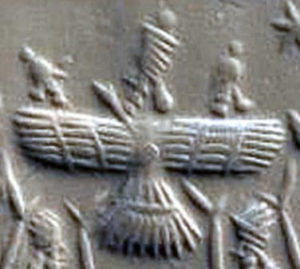
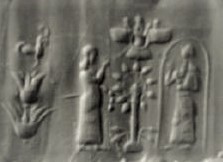
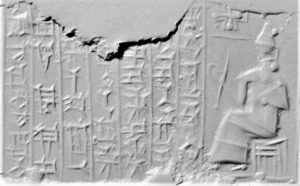
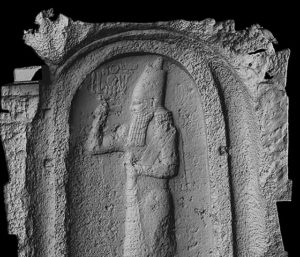
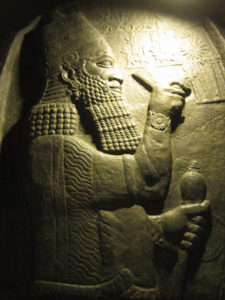
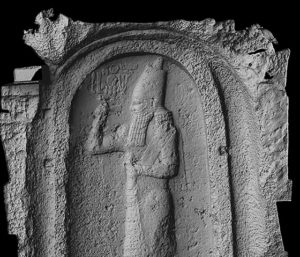
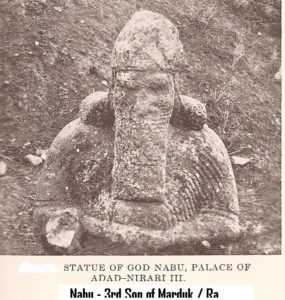
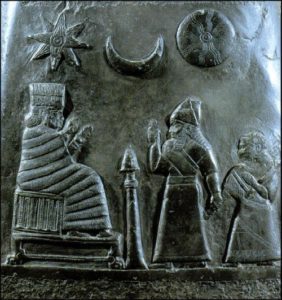

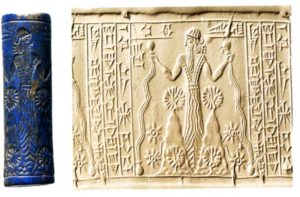
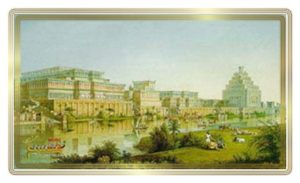 (
(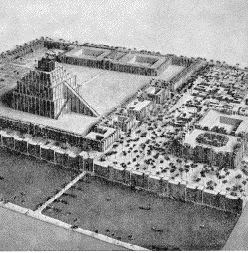
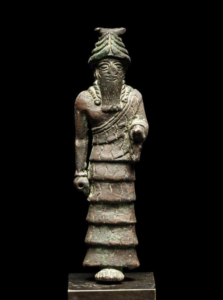
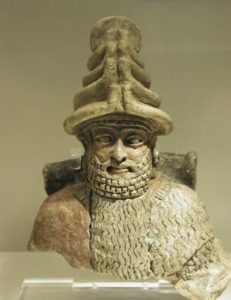
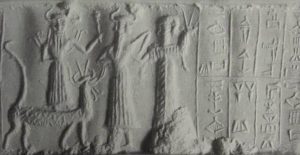

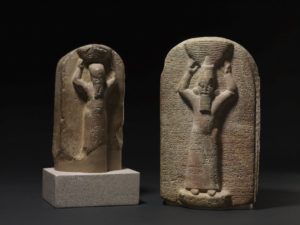
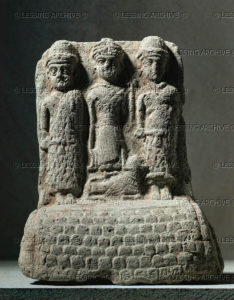 (
(